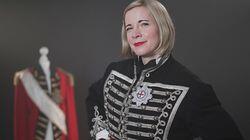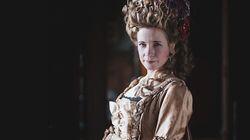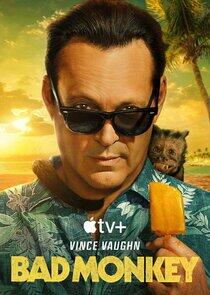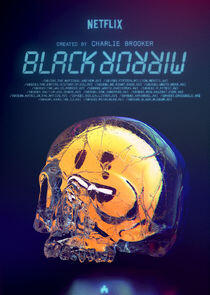Royal History's Biggest Fibs with Lucy Worsley - Season 2

Season 2

Episodes

French Revolution
'Let them eat cake!' is one of the most famous phrases of history and one that everyone associates with the French Revolution. But did Marie Antoinette – the queen of France - really say it? In this film, Lucy Worsley explores some of the myths and fibs swirling around the Revolution of 1789 and the uprising that brought down the French royal family. This violent revolution became the blueprint of many future revolutions across the world. But what happened during this turbulent period is open to historical manipulation and interpretation.
Lucy discovers that Marie Antoinette never said, 'Let them eat cake'. This was a fib used by later historians to help explain why the revolution happened. Historian Michael Rapport explains how the revolution was not started by starving peasants, as many assume but was, in fact, sparked by a group of lawyers and property owners. Along the way, Lucy finds out that Maximilien Robespierre wasn't simply a bloodthirsty revolutionary who relished violence and wanted to execute everyone who disagreed with him. In his earlier years, he stood against the death penalty and slavery and fought for the rights of France's Jewish population. And the guillotine was invented by the revolutionaries not as a brutal punishment but as a more egalitarian and humanitarian form of execution.
Depending on your politics and your nationality, Lucy finds out that everyone has a very different take on the French Revolution.

George IV and the Regency
Lucy Worsley finds the fibs behind the facade of Georgian elegance and discovers how the story of Regency Britain – from Waterloo to Peterloo – was spun to avoid revolution.
We think of the Regency as genteel and well-ordered: beautiful buildings, Jane Austen's romances, and red-coated officers defeating Napoleon at Waterloo. Lucy Worsley digs behind the facade of Georgian elegance to reveal the fibs that helped conceal a darker side to the Regency and suppress rebellion in an age of revolution.
This was the end of the Georgian era when a mentally ill King George III was forced to hand power to his extravagant son – the prince regent and future King George IV. Both kings lived in the shadow of the French Revolution and the rise of Napoleon.
To make matters worse for the royals, British radicals were demanding political reform. To stop rebellion, monarchy and government relied on spin, secrets, and lies. Lucy reveals how an international victory at Waterloo became distinctly British, why the Peterloo Massacre was airbrushed out of history, and how Scotland was dressed up in tartan to support the union.

Russian Revolution
We think we know the story of the Russian revolution - in October 1917, the Bolsheviks rose up, swept the tsar from power, and communism was born. In this film, Lucy explores the myths and fibs that swirl around the dramatic events of 1917. She finds it was really a group of women workers who kick-started the Russian Revolution in February 1917. At the time, the Bolsheviks tried to stop it, and Lenin, the radical leader of the Bolsheviks, wasn't even in the country.
Lucy discovers that the tsar was forced to abdicate long before the Bolsheviks took control. And she finds out how King George V betrayed his cousin by opposing the British government's offer of asylum to the tsar and his family. This was kept secret for decades.
Along the way, Lucy reveals how the Bolsheviks used films and books to big up the October revolution while belittling the February revolution as irrelevant and bourgeois. And when Lenin died in 1924, Stalin lied his way to the top - he repressed Lenin's last wishes and faked paintings and photographs to support his claim to be Lenin's chosen successor.
Recently Updated Shows

General Hospital
General Hospital, which celebrated its golden anniversary on April 1, 2013, continues its tradition of passion, intrigue and adventure that takes place in the fictional town of Port Charles in upstate New York. The glamour and excitement of those who have come to find their destinies in this familiar seaport town intertwine with the lives, loves and fortunes of beloved, well-known faces. As always, love, danger and mind blowing plot twists continue to abound on General Hospital with contemporary storylines and unforgettable characters.

The Curse of Oak Island
The Curse of Oak Island documents brothers Rick and Marty Lagina as they pursue their lifelong dream of solving more than a 220-year old Oak Island mystery. For over two centuries, teams of searchers, including Franklin D. Roosevelt, have attempted to crack the code that will unearth the treasure believed to be buried on the small island off the coast of Nova Scotia. Armed with the knowledge of those that came before them, the muscle of heavy machinery and decades of engineering know-how, the Lagina's and their partners may be closer than anyone in history to finding the treasure that has so far claimed the lives of six men.

Bad Monkey
Bad Monkey tells the story of Andrew Yancy, a one-time detective demoted to restaurant inspector in Southern Florida. A severed arm found by a tourist out fishing pulls Yancy into the world of greed and corruption that decimates the land and environment in both Florida and the Bahamas. And yes, there's a monkey.

Brilliant Minds
Inspired by the extraordinary life and work of world-famous author and physician Oliver Sacks, Brilliant Minds follows a revolutionary, larger-than-life neurologist and his team of interns as they explore the last great frontier - the human mind - while grappling with their own relationships and mental health.

Black Mirror
Over the last ten years, technology has transformed almost every aspect of our lives before we've had time to stop and question it. In every home; on every desk; in every palm - a plasma screen; a monitor; a smartphone--a black mirror of our 21st Century existence. Black Mirror is a contemporary British re-working of The Twilight Zone with stories that tap into the collective unease about our modern world.